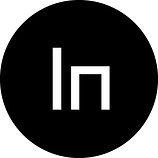A Black Market for Life-Saving Insulin Thrives on Social Media
Thousands of Americans are forced to rely on an illegal network of benevolent strangers to ensure they can access a life-saving drug invented in the 1920s
 In January 2017, Heather Walker was mugged at gunpoint in Oakland, California. Her attacker left her physically unharmed, but stole her purse. A graduate student with virtually no income, Walker’s bag wasn’t worth much. But it did hold something valuable: her insulin supply for the month, required for treating her Type 1 diabetes. Even though Walker immediately filed a police report, her insurance company refused to refill her prescription due to a lack of evidence. Her only recourse was to pay roughly $500 out of pocket for a new vial of the drug.
In January 2017, Heather Walker was mugged at gunpoint in Oakland, California. Her attacker left her physically unharmed, but stole her purse. A graduate student with virtually no income, Walker’s bag wasn’t worth much. But it did hold something valuable: her insulin supply for the month, required for treating her Type 1 diabetes. Even though Walker immediately filed a police report, her insurance company refused to refill her prescription due to a lack of evidence. Her only recourse was to pay roughly $500 out of pocket for a new vial of the drug.
Instead, Walker did what many people with diabetes do when they can’t access the drugs they need: She reached out to a friend in the area who could give her some extra insulin. It is illegal to distribute or receive any prescription drug without a license, but because insulin is not a controlled substance, the penalties for trading the substance are murky.
“I think my parents probably would have lent me that money. But there’s something else wrapped up in this, and that’s the sense of…
